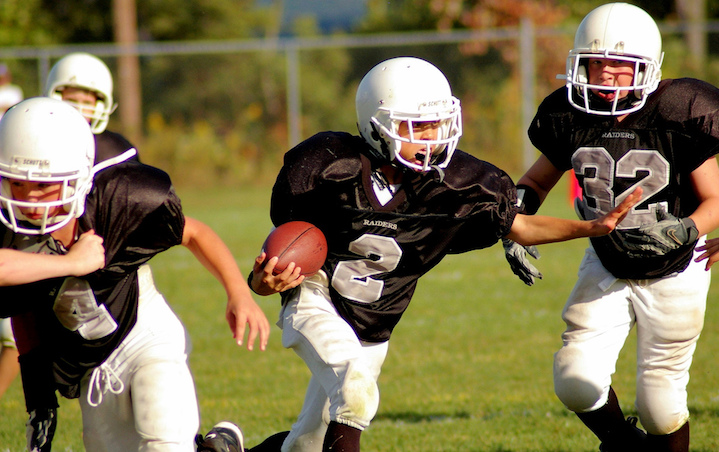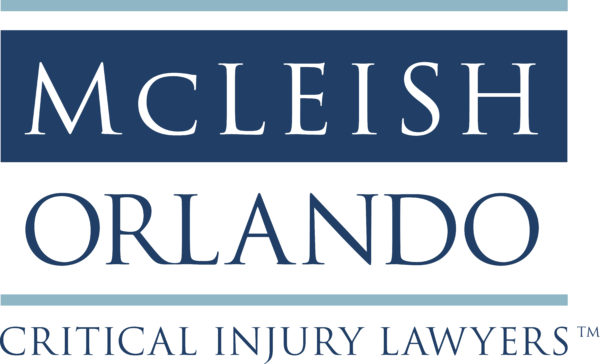
The incidence of reported concussions in children is on the rise. In fact, among children and youth (10-18) who visit an emergency department for a sports-related head injury, nearly 60% are diagnosed with concussions. Specifically, the reported incidence of head injuries sustained by children and youth playing football, soccer, and hockey have increased of more than 40% between 2004 and 2014.
A concussion is a type of traumatic brain injury caused by a blow to the head or body that jars or shakes the brain inside the skull. Any type of brain injury is cause for concern, but the implications of a concussion to a young, developing brain can be devastating for a child. If your kids are starting to play sports, or beginning to engage in activities that may result in incidental contact to the head, it’s important to be aware of concussion prevention, symptom recognition, and appropriate measures for convalescence following a concussion.
Concussions are typically “invisible” injuries and can be difficult to recognize and diagnose. Any of the following symptoms exhibited by your child following a blow to the head may be indicative of a concussion:
Cognitive
- Difficulty thinking clearly
- Mentally “foggy”
- Difficulty concentrating
- Memory issues
- Confusion
Physical
- Headache
- Nausea/vomiting
- Dizziness/balance issues
- Sensitivity to light/sound
- Weakness
- Lack of coordination
- Slurred speech
Emotional
- Irritability
- Depression
- Mood swings
- Anxiety
Sleep
- Fatigue
- Trouble falling asleep
Remember, a concussion, even a serious concussion, is not necessarily associated with loss of consciousness.
If you suspect a concussion
If your child sustains a bump to the head and exhibits any of the above symptoms, take them to the emergency department right away. If your child is particularly young; persistent crying or the inability to be consoled, or even refusing to eat, may be a similar red flag. Prompt medical attention is important in order to rule out, or address, any bleeding that may be present in the brain.
Recovery
The road to recovery is different for every child, and every concussion. The golden rule is rest with little or no time in front of a television or computer screen, and avoiding noisy environments. It is also important to resist allowing your child to rush back to their normal activities. Caution is warranted when considering your child’s return to physically strenuous activities or activities that present the potential for body contact. The following points can guide your child’s convalescence:
- Children should rest, from both physical and cognitive activities, for two or three days, and up to several weeks, following a concussion. They should return to normal activities gradually and only as symptoms allow.
- Children who return to school after a concussion may require classroom adjustments, such as a reduced academic workload, or an abbreviated school day. Children should altogether avoid any activities that cause their symptoms to return. Such activities may be physical, running or sports that may result in another blow to the head; other school-related activities like reading text, or stimulation, such as music, can cause symptoms to reoccur.
Organizations, such as Parachute, have useful resources for the reduction of frequency and severity of concussions as well as improving return to play decision-making.
Post-concussion syndrome
Children who have sustained a concussion are also at risk for developing post-concussion syndrome, which is characterized by headache, dizziness, fatigue, irritability and difficulty with cognitive performance, such as memory and attention. Continue to monitor your child closely as they resume their normal activities.
Multiple concussions
Subsequent concussions tend to increase the risk of developing these symptoms. Some research tends to indicate that multiple concussions can render a child more susceptible to future concussions, and increase the severity of symptoms associated with concussion. The tragic case of Rowan Stringer, a talented young rugby player from Ottawa who died after she sustained two concussions in one week, is a stark reminder of the potential harm of multiple concussions.
Proper sporting equipment, such as a CSA certified helmet, or a fitted mouth guard, may help protect your child. When it comes to traumatic brain injuries, prevention is often the best treatment.
Click here more information about traumatic brain injuries. If you or your child sustains a traumatic brain injury, contact one of the critical injury lawyers at McLeish Orlando LLP for a free consultation.
ALISON BURRISON
McLeish Orlando Critical Injury Lawyers
Alison has appeared in all levels of court in Ontario, as well as administrative tribunals on behalf of her clients. She has also represented clients at multiple mediations involving complex matters of liability and damages.
For more information about Alison visit:
mcleishorlando.com/lawyers/alison-burrison/
Have more questions?
Email Alison Burrison : aburrison@mcleishorlando.com
